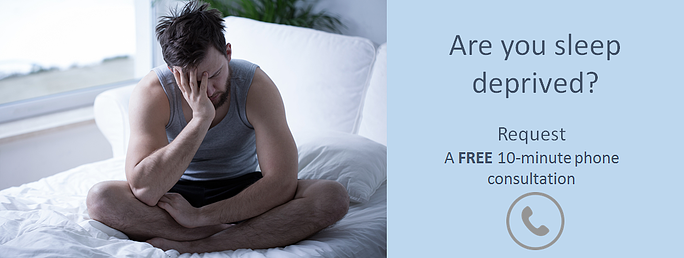
Once you understand just how much of your suffering is attributed to a lack of sleep, you can begin an integrated approach to your overall health. Here are seven ways in which insomnia and your metabolism could be working against you to keep you overweight, sick and tired.
You’ll Burn Less Fat Throughout the Day
Did you know that sleep is essential for all the biochemical processes in your body to function properly? This includes your ability to burn calories and reduce injury to your cells. Medical research suggests that weight gain is associated with sleep deprivation because sleep is what enables the endocrine system to produce necessary fat-regulating hormones. When you close your eyes for less than six hours, you reduce slow-wave sleep, which is essential for restoring your body and supporting metabolic health. If you don’t sleep well, you may need metabolism support to help regulate and maintain a healthy weight.
You’ll Feel Hungry All the Time
Not sleeping affects your cells’ ability to use insulin, which in turn disrupts your hunger hormones. When you don’t sleep well, you may notice you feel hungrier throughout the day. Ghrelin and leptin are hormones that regulate your appetite and satiation. When unbalanced because you’re improperly rested, these hormones cannot do their job, and you’ll require more food to feel full. Overeating leads to obesity as well as numerous other health problems like diabetes and heart failure.
You’ll Crave Carbohydrates and Sugar
Just because you can’t sleep doesn’t mean you’re not tired. You may be wide awake but your brain and body are in despair. An exhausted mind seeks comfort, and humans tend to find it in calorie-dense comfort foods. Studies show that a sleep-deprived body takes much longer to regulate blood sugar when the diet is high-carb.
When you’re sleepy and unmotivated, it’s easier to reach for a box of cookies or a bag of chips instead of preparing a healthy meal. Plus, it’s harder to control yourself when you’re tired, allowing you to make excuses for your behavior and indulge at inappropriate times.
The further danger lies in the potential risk of food addiction. When you crave sugar and carbs, then give in to your cravings, you’ll likely feel rewarded at first, but suffer negative penalties later on. These consequences can come in the form of physical pain, like stomach ache, reflux or heartburn, or they can be emotional, like regret and self-loathing. Much like chemical dependency on drugs or alcohol, food addiction can have very real and severe effects on your health and well-being. Swapping that late-night bowl of sugary cereal for a full eight hours of deep, restful sleep is a much better solution.
You’ll Lack Energy
Do you ever see your neighbors out jogging at six o’clock in the morning and wonder where they find the time and oomph to get it done? You’d love to have an exercise routine, but you’re just too tired to work out. Fitness requires dedication and discipline, but it also requires energy, and you just don’t have any to spare. Chances are, your sleep struggles have disrupted your cortisol levels, leaving you feeling sluggish and stressed throughout the day. Over time, elevated stress hormones can lead to severe adrenal fatigue, which causes pain and weakness.
You’ll Get Sicker Quicker and More Often
Lack of sleep places tremendous stress on your body. When your metabolic health is out of order, you’re at risk for decreased immune function, meaning you can’t fight off disease and infection as easily as you can when you’re completely healthy. Sleeping less than seven hours each night makes you more susceptible to developing a sickness, from the common cold to deadly heart disease.
You’ll Lose Relationships
It’s a no-brainer than when you’re tired, you don’t want to socialize. But with hormone changes caused by a sleep disorder, these feelings can be prolonged or elevated. Soon, you’ll realize that you’re blowing off your friends more often than not, and they will too. When the texts stop coming in altogether, you’ll be tired as well as lonely.
Additionally, when your metabolism is off, you may struggle with your self-esteem, not understanding why your efforts to stay in shape are failing. When you don’t feel good about yourself, having dinner and drinks with the girls can be a painful experience. As a social animal, losing relationships and human connection can only compound existing health problems. While you’re working through your health issues, it’s important to focus on your mental health as well. Instead of retreating from your social groups and isolating yourself, share your experiences and allow your friends and family to support you in your wellness journey.
You’ll Be at Risk for Sleep Apnea
Insomnia and weight gain create a vicious cycle of health problems. A lack of sleep can contribute to obesity, which can then be a risk factor for sleep apnea. This is a serious disorder that deprives the brain of oxygen and impacts breathing during sleep. When you repeatedly wake throughout the night gasping for air, there’s no way to achieve quality rest. Sleep apnea is linked to a number of dangerous health issues such as heart disease, diabetes, high blood pressure, anxiety and depression.
Losing weight can help alleviate the symptoms associated with sleep apnea, but diet and exercise won’t be enough if you already suffer from the condition. You’ll need the help of a qualified sleep specialist to study your case and implement a treatment plan.
You deserve to always feel your best. Understanding how your sleep quality relates to your metabolic health is essential to maintaining an optimal lifestyle. If you have difficulty sleeping, especially for prolonged periods of time, you should pay close attention to your nightly routine and make changes that support quality rest, such as sticking to a sleep schedule, lowering the temperature in your room and removing all electronics from the space.
If you can’t fall or stay asleep, or if you’re struggling with weight-related issues that you think could be related to sleep deprivation, then it may be time to seek answers from your healthcare provider.
In order to start feeling better and reduce the risks of sleep-related issues, start by simply getting more sleep. Examine your schedule and routine and find the time to get 7 to 8 hours of sleep a night. However, if you are already getting the proper amount of sleep, you may have a sleep disorder that is preventing you from getting the quality of sleep you deserve.
If you are struggling with any of the issues discussed in this article, contact the Alaska Sleep Clinic for a free consultation. Click on the image below to request your consultation today.












